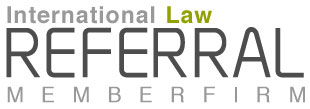Govt targets ‘Soft corruption’
09/27/2010 Source: Global Times
The total cost of international trips made by government and Party officials dropped by 21.4 percent in the first half of this year compared with the same period last year, reflecting the government’s efforts to curb excessive use of public funds.
He Guoqiang, secretary of the Central Commission for Discipline Inspection (CCPI), said at a meeting Saturday that the government’s budget for international trips, official cars and reception fees was cut by another 5.75 billion yuan ($858 million) this year, following a 15.81 billion yuan reduction last year, People’s Daily reported Sunday.
The report didn’t give the breakdown of costs for the three separate items, which have been dubbed as the three gongkuan xiaofei, or public fund expenditures, and the subject of years of criticism.
Ren Yuling, a counselor of the State Council, revealed in 2006 that China’s administrative costs in 2003 made up 19 percent of the country’s total fiscal expenditure, much higher than that of developed countries or the global average.
He added that administrative costs in 2003 were a staggering 87 times the amount of 1978.
Analysts noted that the abnormal surge of administrative costs is closely related to excessive and unsupervised spending of public money on cars, trips and dining by officials. Jiang Hong, a professor at the Public Economy and Management School under the Shanghai University of Finance and Economics, said in March that the cost of the three gongkuan xiaofei is estimated to be 1 trillion yuan each year.
After the government began tackling this problem of so-called “soft corruption” in 2006, a slew of regulations was announced and expenditure has seen a drop in recent years.
In April, Chinese embassies around the world simplified their welcome ceremonies for visiting Chinese leaders. In June, the CCPI issued a new policy stating that officials who use public money to make private trips abroad are subject to expulsion from the CPC.
“These moves have been effective in reducing the figures, but soft corruption is still far from extinct, and is taking new forms and disguises,” Zhu Lijia, a professor at the Chinese Academy of Governance, told the Global Times, citing domestic tour-ism as its latest manifestation.
The ancient city of Pingyao in Shanxi Province has been hosting up to 100,000 officials a year who go there on free sightseeing trips, China Central Television reported in June. These officials from across China visit Pingyao in the name of public duty and are given free admission to tourist sites along with free lodging and meals.
“The only way to uproot the problem is to open up the government budget and make the costs transpar-ent,” said Zhu. “The media and the public will be able to see if public money is being put to its correct use.”
However, Gao Qiang, director of the Budget Committee of the National People’s Congress Standing Committee, noted in March that the three gongkuan xiaofei are not currently counted as separate items in the government’s budget, making them difficult to define and control.
“Sub-classifying the accounting items should be the focus of future budgeting work,” Gao said.


